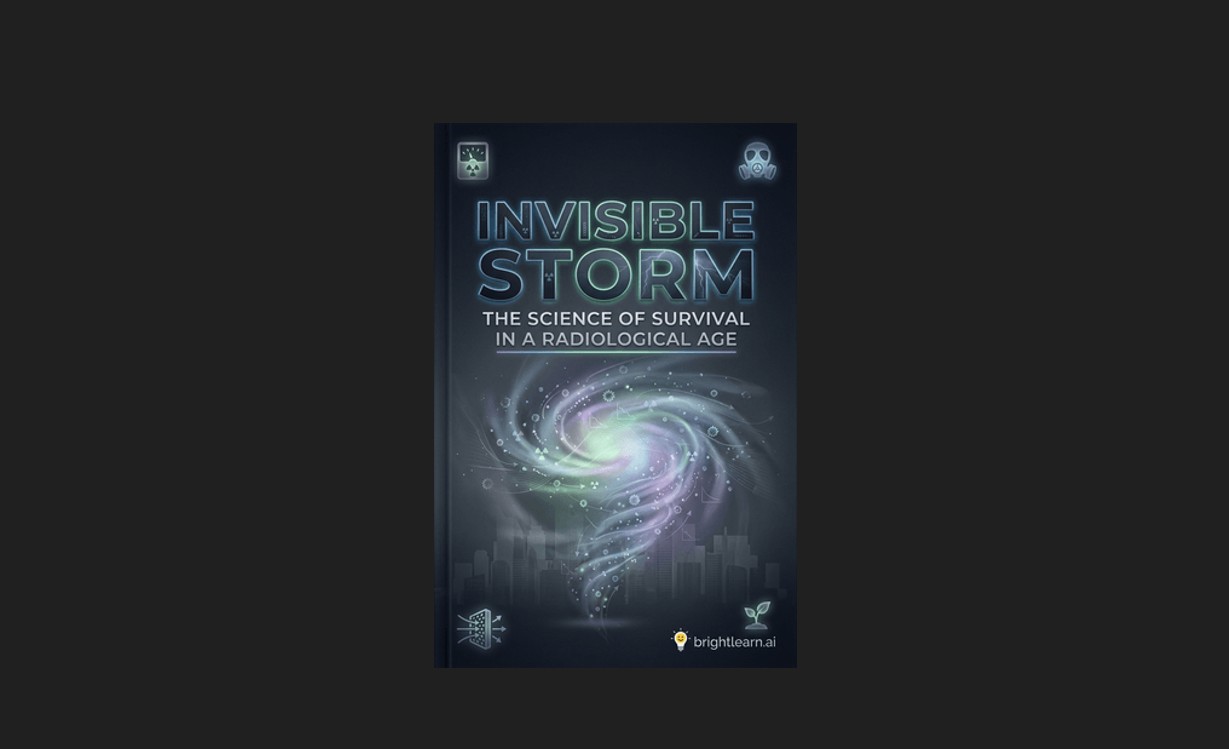© Brighteon.com All Rights Reserved. All content posted on this site is commentary or opinion and is protected under Free Speech. Brighteon is not responsible for comments and content uploaded by our users.
Mammography: The War on Women's Breasts (Drs. Ben Johnson and Galina Migalko)
172 followers
Follow
2
Share
Report
162 views • 01/02/2022
https://articles.mercola.com/sites/articles/archive/2022/01/01/mammograms-documentary.aspx
https://boobsdoc.com/watch-now
The documentary “Boobs: The War on Women’s Breasts” explores how mammography is causing more harm than good for many women
One of the harms of using mammography as a screening tool is that it can often lead to overdiagnosis and overtreatment, including false-positive tests and unnecessary biopsies
Due to the introduction of mammography, breast cancer was overdiagnosed — meaning that tumors were detected that would never lead to clinical symptoms — in 1.3 million women over a 30-year period
Mammograms and their resulting biopsies may increase the spread of cancer, and up to 1 in 4 breast tissue biopsies may be incorrectly diagnosed by pathologists, with unnecessary mastectomies being performed as a result
There’s also the issue that mammograms use ionizing radiation at a relatively high dose, which in and of itself can contribute to the development of breast cancer
Other potentially safer options to mammography such as thermography and ultrasound are not widely available because the billion-dollar mammagoraphy industry prevents the widespread use of these beneficial tests
This article was previously published October 10, 2020, and has been updated with new information.
When asked how much radiation women are exposed to from mammograms, Dr. Ben Johnson, author of "No Ma'am-ograms," says, "At least the amount of 100 chest X-rays."
It's a statement that would surprise many women who are advised to receive a mammogram as the standard of care for breast cancer prevention in the U.S. — and it's just one of the eye-opening facts presented in the documentary "Boobs: The War on Women's Breasts."
The film begins with a written statement informing viewers that all of the information you're about to hear is supported by scientific literature, even though much of it opposes the assertions made by conventional medicine. Doctors from across the United States and around the world — including California, Georgia, Switzerland, Virginia and Arizona — are interviewed, providing expert testimony on why you may want to rethink this controversial procedure.
The 'Early Detection' Myth and Biopsy Risks
One myth perpetuated by conventional medicine is that mammography is the most important screening test for breast cancer because it can detect breast cancer "up to two years before the tumor can be felt by you or your doctor."1
However, the film points out that by the time you can feel a cancerous lump in your breast, the cancer has already been growing for two to five years. "Mammograms are not early detection," Johnson says.
The myth that mammograms don't spread cancer is also addressed, via the story of one woman who was diagnosed with stage 4 cancer and given only 1 year to live. She made significant changes to her lifestyle and many of the tumors disappeared. The cancer was stable years later, until she received a biopsy and subsequent mammograms, which she says made the cancer spread — and a tumor appeared in the area where the biopsy was done.
During a biopsy, a piece of tissue from a tumor or organ is removed so that it can be examined under a microscope, often to determine if it is cancerous. Needle biopsies, for instance, are widely used as part of the traditional allopathic approach to diagnosing breast cancer. But they may accidentally cause malignant cells to break away from a tumor, resulting in its spreading to other areas of your body.
One of the harms of using mammography as a screening tool is that it can often lead to overdiagnosis and overtreatment, including false-positive tests and unnecessary biopsies.2
One study from the John Wayne Cancer Institute revealed that a needle biopsy may increase the spread of cancer compared to patients who receive excisional biopsies, also known as lumpectomies.3 They concluded, "Manipulation of an intact tumor by FNA [fine-needle aspiration] or large-gauge needle core biopsy is associated with an increase in the incidence of SN [sentinel node] metastases, perhaps due in part to the mechanical disruption of the tumor by the needle."4
Johnson said he calls biopsies "the kiss of death," describing how the needle gets driven through a billion cells, blows through the cancer and goes out the other side, dragging cells back through and spreading the cancer. Dr. Manfred Doepp, medical director of the Couros Center in Switzerland, agrees that biopsies can spread cancer, while the physical act of squeezing the breast during mammography may also trigger the cancer to spread.....
Also....
Breast Cancer Overdiagnosed in 1.3 Million Women
Up to 80% of Breast Biopsies Are Benign
Mammograms May Not Work for Women With Dense Breasts
'Precancer': Ductal Carcinoma in Situ
Is Radiation From Mammograms Dangerous?
Thermography and Ultrasound Use No Radiation
https://boobsdoc.com/watch-now
The documentary “Boobs: The War on Women’s Breasts” explores how mammography is causing more harm than good for many women
One of the harms of using mammography as a screening tool is that it can often lead to overdiagnosis and overtreatment, including false-positive tests and unnecessary biopsies
Due to the introduction of mammography, breast cancer was overdiagnosed — meaning that tumors were detected that would never lead to clinical symptoms — in 1.3 million women over a 30-year period
Mammograms and their resulting biopsies may increase the spread of cancer, and up to 1 in 4 breast tissue biopsies may be incorrectly diagnosed by pathologists, with unnecessary mastectomies being performed as a result
There’s also the issue that mammograms use ionizing radiation at a relatively high dose, which in and of itself can contribute to the development of breast cancer
Other potentially safer options to mammography such as thermography and ultrasound are not widely available because the billion-dollar mammagoraphy industry prevents the widespread use of these beneficial tests
This article was previously published October 10, 2020, and has been updated with new information.
When asked how much radiation women are exposed to from mammograms, Dr. Ben Johnson, author of "No Ma'am-ograms," says, "At least the amount of 100 chest X-rays."
It's a statement that would surprise many women who are advised to receive a mammogram as the standard of care for breast cancer prevention in the U.S. — and it's just one of the eye-opening facts presented in the documentary "Boobs: The War on Women's Breasts."
The film begins with a written statement informing viewers that all of the information you're about to hear is supported by scientific literature, even though much of it opposes the assertions made by conventional medicine. Doctors from across the United States and around the world — including California, Georgia, Switzerland, Virginia and Arizona — are interviewed, providing expert testimony on why you may want to rethink this controversial procedure.
The 'Early Detection' Myth and Biopsy Risks
One myth perpetuated by conventional medicine is that mammography is the most important screening test for breast cancer because it can detect breast cancer "up to two years before the tumor can be felt by you or your doctor."1
However, the film points out that by the time you can feel a cancerous lump in your breast, the cancer has already been growing for two to five years. "Mammograms are not early detection," Johnson says.
The myth that mammograms don't spread cancer is also addressed, via the story of one woman who was diagnosed with stage 4 cancer and given only 1 year to live. She made significant changes to her lifestyle and many of the tumors disappeared. The cancer was stable years later, until she received a biopsy and subsequent mammograms, which she says made the cancer spread — and a tumor appeared in the area where the biopsy was done.
During a biopsy, a piece of tissue from a tumor or organ is removed so that it can be examined under a microscope, often to determine if it is cancerous. Needle biopsies, for instance, are widely used as part of the traditional allopathic approach to diagnosing breast cancer. But they may accidentally cause malignant cells to break away from a tumor, resulting in its spreading to other areas of your body.
One of the harms of using mammography as a screening tool is that it can often lead to overdiagnosis and overtreatment, including false-positive tests and unnecessary biopsies.2
One study from the John Wayne Cancer Institute revealed that a needle biopsy may increase the spread of cancer compared to patients who receive excisional biopsies, also known as lumpectomies.3 They concluded, "Manipulation of an intact tumor by FNA [fine-needle aspiration] or large-gauge needle core biopsy is associated with an increase in the incidence of SN [sentinel node] metastases, perhaps due in part to the mechanical disruption of the tumor by the needle."4
Johnson said he calls biopsies "the kiss of death," describing how the needle gets driven through a billion cells, blows through the cancer and goes out the other side, dragging cells back through and spreading the cancer. Dr. Manfred Doepp, medical director of the Couros Center in Switzerland, agrees that biopsies can spread cancer, while the physical act of squeezing the breast during mammography may also trigger the cancer to spread.....
Also....
Breast Cancer Overdiagnosed in 1.3 Million Women
Up to 80% of Breast Biopsies Are Benign
Mammograms May Not Work for Women With Dense Breasts
'Precancer': Ductal Carcinoma in Situ
Is Radiation From Mammograms Dangerous?
Thermography and Ultrasound Use No Radiation
Keywords
FREE email alerts of the most important BANNED videos in the world
Get FREE email alerts of the most important BANNED videos in the world that are usually blacklisted by YouTube, Facebook, Google, Twitter and Vimeo. Watch documentaries the techno-fascists don't want you to know even exist. Join the free Brighteon email newsletter. Unsubscribe at any time. 100% privacy protected.
Your privacy is protected. Subscription confirmation required.





